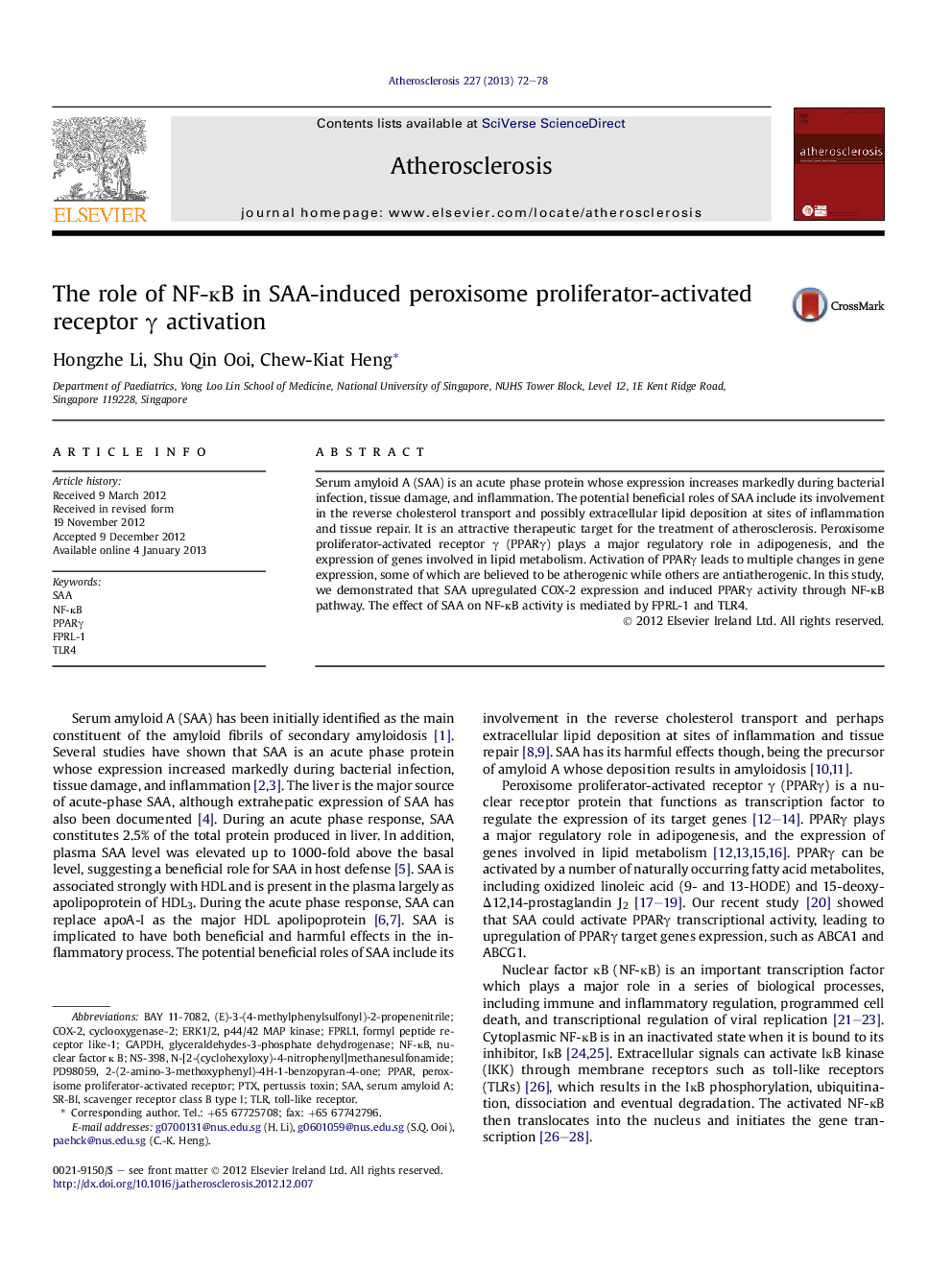| Article ID | Journal | Published Year | Pages | File Type |
|---|---|---|---|---|
| 5947120 | Atherosclerosis | 2013 | 7 Pages |
Serum amyloid A (SAA) is an acute phase protein whose expression increases markedly during bacterial infection, tissue damage, and inflammation. The potential beneficial roles of SAA include its involvement in the reverse cholesterol transport and possibly extracellular lipid deposition at sites of inflammation and tissue repair. It is an attractive therapeutic target for the treatment of atherosclerosis. Peroxisome proliferator-activated receptor γ (PPARγ) plays a major regulatory role in adipogenesis, and the expression of genes involved in lipid metabolism. Activation of PPARγ leads to multiple changes in gene expression, some of which are believed to be atherogenic while others are antiatherogenic. In this study, we demonstrated that SAA upregulated COX-2 expression and induced PPARγ activity through NF-кB pathway. The effect of SAA on NF-кB activity is mediated by FPRL-1 and TLR4.
⺠SAA stimulated NF-кB activity. ⺠SAA upregulated COX-2 expression through NF-кB pathway. ⺠SAA induced PPARγ activity through NF-кB pathway. ⺠The effect of SAA on NF-кB activity is mediated by FPRL-1 and TLR4.
